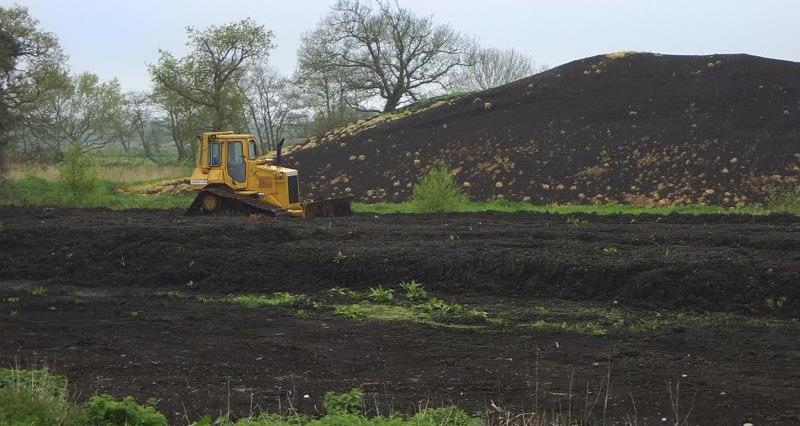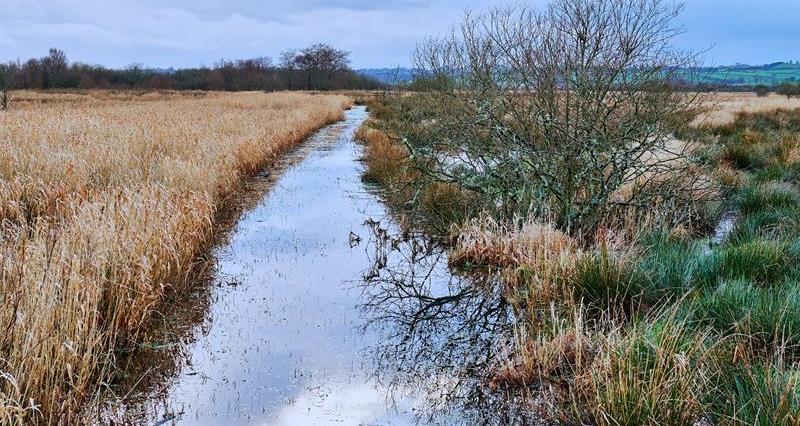Exemptions for edible and ornamental growers beyond 2024
Defra has said that a ban in the professional sector is likely to come at a much later date, potentially into the next decade, in recognition of the complex challenges growers are up against in shifting to alternative materials and the associated knock-on impacts to the market.
However, earlier this year, a blog post published on the Defra website suggested they were developing policy to end the sale of peat, and peat containing products in 2024, with a general exemption for all professional use until 2026. A small number of additional specific technical exemptions for mushroom production and propagation until 2030 is also part of their current proposal.
Defra has also said it is open to including more exemptions as understanding of the challenges to meeting the 2026 deadline develops.
You can read more on the NFU’s reaction at: NFU calls for exemptions as Defra announce peat ban
Industry engagement
Defra has been engaging across both the edible and ornamental sector to understand what requires an exemption, why and for how long. It has committed to continuing to hold a dialogue with stakeholders on the need for further exemptions. The NFU along with the HTA both reject the proposal of a ban in 2026 and are working hard to put forward the case for policy development to revert back to the original 2030 date, with exemptions thereafter.
Defra has also been asking the industry what support is needed for growers to shift to alternative materials.
A clear ask from all growers, and the NFU, is to allow for sufficient time to move, supported by government unblocking policy barriers in accessing a variety of sustainable alternative materials, grant funding for infrastructure, equipment, and R&D into finding new materials.
The NFU doesn’t want to see legislation
The NFU, along with others from the Growing Media Taskforce, which is a group formed by the HTA, continue to maintain that legislation is not the right mechanism to shift the industry to sustainable alternative growing media.
As a responsible sector, conscious of our own environmental footprint, collectively we acknowledge the need to reduce our peat use and indeed are doing so annually.
But there are challenges and unintended consequences to consider, such as having alternative materials available at scale and ensuring a level playing field with imports.
As an industry we must also consider carefully that we are not exporting our carbon footprint by shifting to unsustainable alternatives.
As such, we are calling on the government to give industry the right time it needs to adapt to peat free growing media, and to work with industry to remove policy barriers which prevent growers from accessing alternative materials. We have also asked Defra to support growers to find sustainable alternatives through funding and R&D.
Imports
“It’s imperative that UK growers are able to operate on a level playing field. We know the market relies on imports and that the supply chain will be severely impacted if the 2026 ban is implemented,” said NFU Horticulture and Potatoes Board chair Martin Emmett.
"This is also why we continue to challenge Defra’s evidence behind the proposed a ban on professional use by 2026.”
Facts
- Defra received over 5,000 responses to its consultation earlier this year, many of which were from NGO led public campaigns. Growers and industry bodies also submitted industry views.
- Around 0.5 million tonnes of C02 is emitted from UKs use of peat in growing media in the UK, out of a total UK CO2e emissions of 205 million tonnes; peat in UK growing media account for 0.12% of the UKs carbon emissions and is already rapidly falling
- Peat extraction in the UK is from around 1,000 hectares or 0.04% of the UK’s peatlands and is falling rapidly.
- Industry reduced the volume of peat it used in 2021 vs 2020 by 0.5m (30%) cubic metres in the growing media supplied to gardeners
- Peat is no longer the most voluminous component in growing media sold to gardeners, having been overtaken by wood-based materials such as wood fibre.
Follow the journey of the government’s plans to ban the use of peat in horticulture

